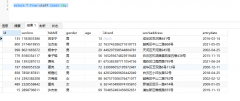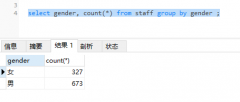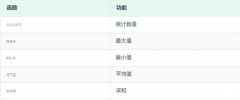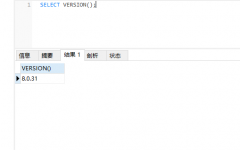Does the order of conditions in a WHERE clause affect MySQL performance?(WHERE 子句中的条件顺序是否会影响 MySQL 性能?)
问题描述
假设我有一个长而昂贵的查询,其中包含条件,搜索大量行.我还有一个特定条件,例如公司 ID,它将大大限制需要搜索的行数,将搜索范围从数十万缩小到数十个.
Say that I have a long, expensive query, packed with conditions, searching a large number of rows. I also have one particular condition, like a company id, that will limit the number of rows that need to be searched considerably, narrowing it down to dozens from hundreds of thousands.
我是否这样做对 MySQL 的性能有什么影响:
Does it make any difference to MySQL performance whether I do this:
SELECT * FROM clients WHERE
(firstname LIKE :foo OR lastname LIKE :foo OR phone LIKE :foo) AND
(firstname LIKE :bar OR lastname LIKE :bar OR phone LIKE :bar) AND
company = :ugh
或者这个:
SELECT * FROM clients WHERE
company = :ugh AND
(firstname LIKE :foo OR lastname LIKE :foo OR phone LIKE :foo) AND
(firstname LIKE :bar OR lastname LIKE :bar OR phone LIKE :bar)
推荐答案
不,顺序应该没有太大的不同.在查找与条件匹配的行时,会检查每一行的整个条件(通过布尔逻辑组合的所有子条件).
No, the order should not make a large difference. When finding which rows match the condition, the condition as a whole (all of the sub-conditions combined via boolean logic) is examined for each row.
一些智能数据库引擎会尝试猜测条件的哪些部分可以更快地评估(例如,不使用内置函数的东西)并首先评估那些,然后更复杂的(估计)元素被评估.不过,这是由数据库引擎决定的,而不是 SQL.
Some intelligent DB engines will attempt to guess which parts of the condition can be evaluated faster (for instance, things that don't use built-in functions) and evaluate those first, and more complex (estimatedly) elements get evaluated later. This is something determined by the DB engine though, not the SQL.
这篇关于WHERE 子句中的条件顺序是否会影响 MySQL 性能?的文章就介绍到这了,希望我们推荐的答案对大家有所帮助,也希望大家多多支持编程学习网!
本文标题为:WHERE 子句中的条件顺序是否会影响 MySQL 性能?


基础教程推荐
- ORA-01830:日期格式图片在转换整个输入字符串之前结束/选择日期查询的总和 2021-01-01
- MySQL 5.7参照时间戳生成日期列 2022-01-01
- MySQL根据从其他列分组的值,对两列之间的值进行求和 2022-01-01
- 使用 VBS 和注册表来确定安装了哪个版本和 32 位 2021-01-01
- CHECKSUM 和 CHECKSUM_AGG:算法是什么? 2021-01-01
- 带有WHERE子句的LAG()函数 2022-01-01
- while 在触发器内循环以遍历 sql 中表的所有列 2022-01-01
- 带更新的 sqlite CTE 2022-01-01
- 如何在 CakePHP 3 中实现 INSERT ON DUPLICATE KEY UPDATE aka upsert? 2021-01-01
- 从字符串 TSQL 中获取数字 2021-01-01

















